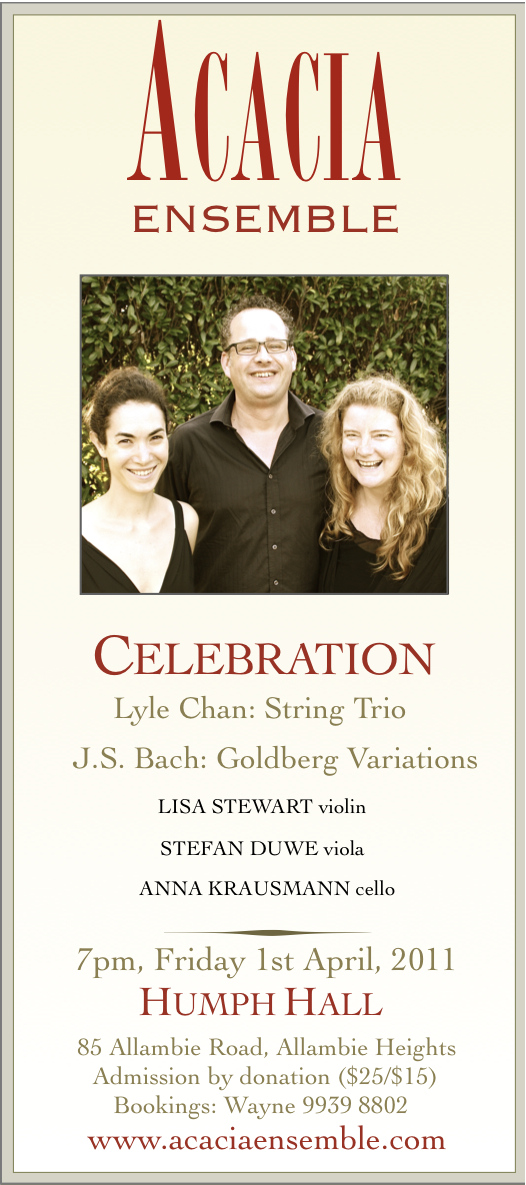
On Friday April 1, the Acacia Ensemble will premiere my string trio called Dan (Take Out The Trash). Here is an electronic performance of it meanwhile.
A couple of years ago I discovered the story of Dan Millman. In the 1960s, Millman was a world champion gymnast, winning an international competition while still a college freshman at the University of California, Berkeley. Then he had a motorcycle accident that shattered his right femur in 40 places. Such a catastrophic event would have ended the career of any gymnast, except Millman recovered and co-captained his Cal Bears team to win the 1968 NCAA Men’s Gymnastics Championship.
In his 1980 book Way of the Peaceful Warrior Millman told the story of the mental, physical and spiritual journey he undertook as part of the recovery. It was slow to find an audience but now it’s a classic of the personal growth literature and is read in some 20 languages.
Way of the Peaceful Warrior is written as an autobiographical novel. Even before the accident, Dan felt a gnawing dissatisfaction in what appeared to be a successful life. He felt no lasting peace despite all the awards and acclaim. One night, unable to sleep, he walks to a gas station to purchase a snack and makes friends with the attendant – a mysterious old man with wisdom, humor and seemingly the occasional supernatural ability. Dan nicknamed him Socrates because, grudgingly and in spite of his self-assured self, he begins learning so very much from the man.
Essentially – and I summarise my interpretation of the learnings here – Socrates teaches Dan that while he has learned to be in charge of his body as a gymnast, it remains for him to apply the same to all aspects of his life: to be in charge of his own mind, to realise that answers are within him, not in other people’s wisdom, that eating and walking require the same presence of mind that gymnastics does, that happiness is a choice and not a reaction to life, and that what matters is the journey, not the destination.
Presence of mind is my favourite lesson from this book. I was learning it anyway – from Steve Pavlina, from Amir Zoghi – but it’s a lesson that can’t be learned too many times, I find. As Dan puts it, once you live life fully present, “There’s never nothing going on. There are no ordinary moments.” I just love those two sentences.
Here’s one example that Dan tells in the book: ‘One time I finished my best-ever pommel horse routine and walked over happily to take the tape off my wrists. Soc[crates] beckoned me and said, “The routine looked satisfactory, but you did a very sloppy job taking the tape off. Remember, every-moment satori.”’
Satori is a Japanese Buddhist term that is defined variously by all kinds of people, so I’ll stick with Socrates’:
“Satori is the warrior’s state of being; it occurs at the moment when the mind is free of thought, pure awareness; the body is active, sensitive, relaxed; and the emotions are open and free: satori is what you experienced when the knife was flying towards you.”
I find if I interpret satori as complete presence, as being completely devoted to the experience I’m having, I have the definition most useful for me. My definition may change in the future, but if I even contemplate that, I violate satori.
So this string trio was sketched with Peaceful Warrior in my awareness. Though it forms part of my string quartet, I wrote this section as a trio because the roles were so stratified in my mind that it was clear I only had three roles.
The violin is the gymnast. Its acrobatics are graceful, powerful and meaningful in the context of its journey. Some passages are difficult to execute, and like a gymnast doing three consecutive flips on the still rings, the violinist must enter a peaceful warrior’s state of mind, be open to both success and failure, and know that failure cannot occur in the absence of fear.
The cello is the trampoline and net, shifting limberly to the weight of the violin.
The viola provides an otherworldly sound by playing harmonics, like a higher self in another plane, observing and even creating the world for the violin.
The piece ends with several statements of a hale, heartfelt melody that came to me years earlier. This was before I’d ever heard of Dan Millman. I had no use for it at the time. But as I was composing this trio some 7 years later, I knew it belonged here. And it does. It was probably Dan’s theme all along, and I love it that it has a home now.
I’m grateful to the Acacia Ensemble for asking if I could provide them a trio to play in a concert alongside Bach’s Goldberg Variations. So much of my string quartet exists only in sketch form. I’ve been sketching for years. The concert gave me a reason to flesh out and actually write down the piece.
Where does the title come from? It comes from the movie version of the story, which is different in some important details from the novel. Produced some 16 years later, it sometimes has clearer expositions of the lessons. Speaking of revisions, the revised version of the book from 2000 has some valuable additions, including the section I quoted about “every-moment satori”.
Here’s the section of the movie where Socrates tells Dan what’s holding him back, from which my title comes.
“Take out the trash, Dan. The trash is anything that is keeping you from the only thing that matters, this moment. Here. Now. And when you truly are in the here and now, you’ll be amazed at what you can do and how well you can do it.”
Concert and ticket information is here.



{ 3 comments… read them below or add one }
I loved reading this Lyle, what a wonderful creation you have manifested from inspiration. I hope to be able to hear your composition live with the Acacia Ensemble, and I look forward to catching up with you very soon.
Love & hugs,
Jodie
Simply beautiful Lyle. Thank you for this exquisite work of art from a true Master. I will be thinking of you tomorrow night. With gratitude, Danijela
That was lovely! Thanks for sharing it here.